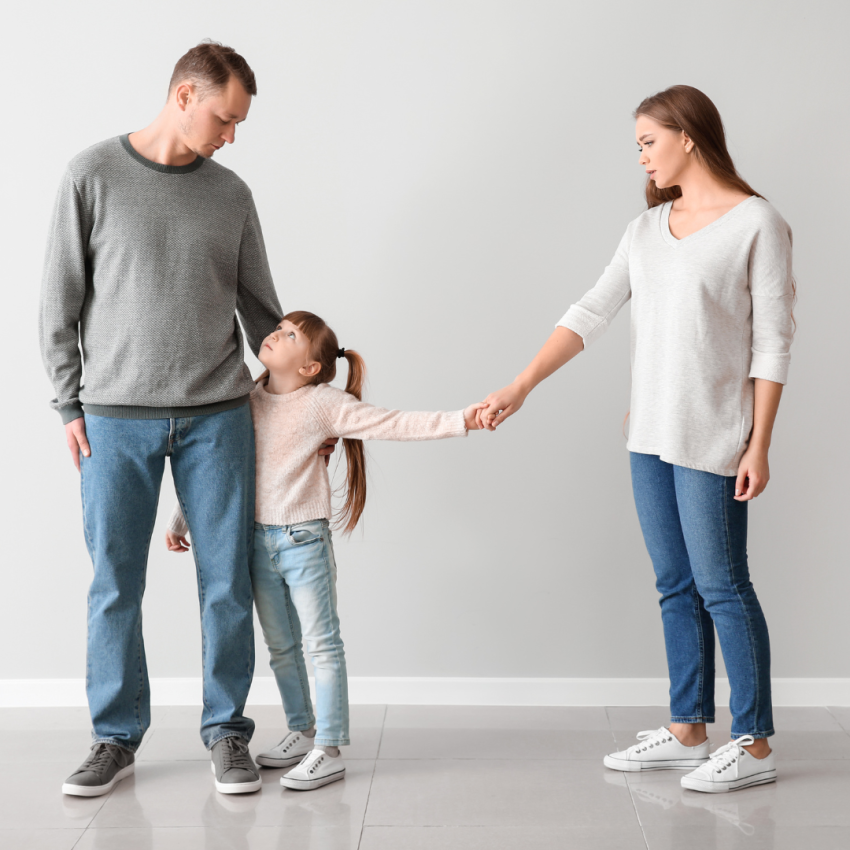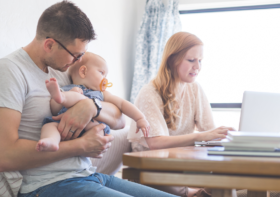How Divorce Affects Children: The Fallout Of A Broken Family

Divorce affects children in a variety of ways. Whether they’re coping with the actual divorce or a broken parent, children can often take in more than they are able to handle and can be left with emotional scars. In this article, we’ll discuss how divorce can affect children and ways you can help them cope.
What Is Divorce?
Divorce refers to the legal termination of a marriage or civil partnership between two individuals. Once a divorce is finalized, the marital status of the couple changes, leading to a shift in their rights and responsibilities. To initiate the divorce process, couples often require the assistance of a Family Lawyer Phoenix (or their respective location) to file the necessary paperwork. The court will then grant the divorce, taking into account various factors such as the interests of both parties, division of assets, child custody arrangements, and alimony payments.
Is Divorce Always A Bad Thing?
Many people believe that divorce is always a bad thing for children, but this is not always the case. In fact, some studies have found that children of divorced parents often do better than those from intact families in terms of overall well-being. The key to understanding why this is the case lies in how divorce affects children’s relationships with their parents and other family members.
When parents divorce, it can lead to a number of problems in the children’s relationships with each parent. For example, one study found that kids who live with their mothers after their parent’s divorce are more likely to experience levels of stress and distress that are comparable to those who live with their fathers. This is because moms are more likely than dads to be responsible for the care and upbringing of their kids following a marital breakup – which can create challenges when they must try to reconcile old differences while also taking on new parenting responsibilities.
When courts determine the custody of a child, they take many factors such as this into consideration. If the mother has an attorney on her side similar to these Maryland best interest of child lawyers, then she may find a better resolution for her child. However, even with fathers, there are exceptions and sometimes they might be the more responsible parent. In any case, when a couple gets divorced, all parties involved have to consider the mental health, physical safety, and overall wellbeing of the child.
Additionally, when one parent is the primary caregiver during childhood, it can impact the child’s views about masculinity and femininity later on in life. Boys may learn that being nurturing and caring is more traditionally feminine, while girls may learn that being strong and independent is more typically masculine. This can lead to difficulties during adulthood when these attitudes conflict – for example, when a woman wants to be both a good mother and an executive at work.
The Fallout Of A Broken Family
When parents get divorced, it can have a significant impact on their children. Studies show that children of divorced parents are more likely to experience problems in their own relationships, including experiencing domestic violence. In some cases, children may even become estranged from one or both of their parents.
Divorce can have a negative impact on children, especially if there is discord between the parents. Divorce can cause a child to feel abandoned or unsupported, which can lead to feelings of sadness, loneliness, and insecurity. Studies have shown that children who experience parental divorce are more likely to suffer from depression, anxiety, and other mental health issues. Additionally, divorced children are more likely to have lower academic achievement and poorer relationships with their peers. In some cases, children may be quite literally abandoned or in danger after a divorce, and the government often has to step in to help.
The Department of Children and Family Services (DCFS) plays a crucial role in ensuring the safety and well-being of children involved in divorce cases. However, there have been instances where the DCFS oversteps its bounds and intervenes in cases where it may not be necessary or appropriate. This can lead to unnecessary stress and trauma for children and families involved. In such cases, it may be necessary to seek the help of a DCFS lawyer in Schaumburg (or one closer to you) who can help protect the rights and interests of the family and ensure that the DCFS is acting within its legal authority.
Fortunately, there are things you can do to help your child cope with the effects of a broken family system. You can provide them with support and understanding during this difficult time. You can also make sure they have access to resources such as counseling services and group therapy sessions. It’s important to remember that not every child will react the same way to a divorce, so it’s important to listen to them and offer what comfort you can.
If you are considering filing for divorce, it is important to consider the long-term effects it will have on your child. It is important to talk with your lawyer about your options so that you can make the best decision for your child.
How Divorce Affects Children
When parents divorce, children may feel sadness, anger, and confusion. They may also feel scared or alone. Some children may experience a change in their relationship with their parent who gets divorced. Other children may not have a change in their relationship at all.
Children of divorced parents often deal with many different emotions. Depending on the age and maturity of your child, they might act out due to feelings of anger, sadness, fear, or loneliness. They may also have problems concentrating or sleeping because of all the changes impacting their lives.
Children who experience parental divorce often struggle with self-esteem and confidence. They may also feel confused about their identity and role in the family. Children who are struggling emotionally may become more prone to developing substance abuse or other behavioral problems, such as agitation, anger, isolation, lack of communication, or selective mutism.
Most children adjust to divorce in one way or another but it’s important for them to have someone to talk to about what they are going through. A pediatric therapist can provide support and guidance for your child during this time. If you are seeing specific issues like your child not interacting with friends or teachers in school or not showing emotions, you can also consider special speech-language therapy at the CASRF website or similar other treatments. This can help your child to communicate better, share emotions they felt after the divorce, and boost their confidence.
How To Heal Your Broken Family
Children who are left parentless or with a broken family often have trouble coping with the emotional fallout. This can have a significant impact on their development, both physically and mentally. Here are some tips to help heal your broken family:
1. Let your children know you love them.
Make it clear to your children that you care about them and that you are there for them during this difficult time. Tell them that they can come to you with anything they’re feeling, and let them know that you will always be there for them.
2. Spend time with your children.
Spend time together as a family, doing things that you used to enjoy before the divorce occurred. This will help restore some of the joyfulness in the household and help the children connect with their parents again.
3. Don’t isolate your children from their friends or other relatives.
Divorce can create tense relationships between parents and children, so it is important for them to maintain connections with others outside of the family unit. Encourage your children to spend time with their grandparents, aunts, uncles, or other relatives who can provide support during this difficult time.
4. Help your child develop healthy coping mechanisms.
This means teaching them how to deal with their emotions in a healthy way. One way to do this is to model healthy coping yourself. Show your child how to express their emotions in a constructive way. Also, provide them with outlets for their emotions such as art or journaling. Finally, make sure to provide plenty of love and support.




Leave a Reply